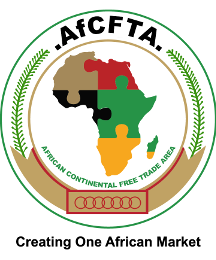The Federal Government has called on the Nigerian private sector to maximise the African Continental Free Trade Agreement (AFCFTA).
The Minister of Industry, Trade and Investment, Otunba Niyi Adebayo, made the call on Thursday at the Lighting of the Africa Trade Torch organised by the African Business Council in Cairo.
He said the participation of the private sector would be vital in birthing the goals of the AfCFTA.
He said: “I strongly believe that there can be no AfCFTA without the full participation of the private sector, as the key driver of economies within the continent and beyond. Thus, the private sector has the sole power to operationalise the agreement.
“However, the effects of the AfCFTA on economic and social transformation depends on the degree to which the private sector can seize the opportunities the agreement provides, i.e., make African economies more competitive and enable development and elevation of regional value chains with a focus on SMEs,” he said.
Citing a report by PwC, the minister said SMEs in Nigeria contribute about 48 per cent of the Gross Domestic Product (GDP), and account for about 96 per cent of businesses and 84 per cent of employment opportunities within the country.
He said:“Another survey conducted by the National Bureau of Statistics and Small and Medium Enterprises Development Agency of Nigeria, the Nigerian SME sector is strategically positioned to absorb up to 80 per cent of jobs, improve per capita income, increase value addition to raw material supply, improve export earnings and enhance capacity utilisation in certain key industries.
“Accordingly, I would like to call on the Nigerian private sector to fully key into the AfCFTA and also lend their support to the work that is been done by the African Business Council.”
Describing the private sector as the engine of the African economy, Adebayo appealed to governments to assume the important role of promoting trade development.
“For the private sector to succeed, we need entrepreneurial states with governments that would assume regulatory, coordinating and catalytic roles,” he said.
Speaking at the event, the interim Chairman of the association, Pan-African Manufacturers Association, Mr Mansur Ahmed, restated the association’s commitment to promoting engagement in intra-Africa trade and cross-border value chains.
He hailed the contributions of the Manufacturers Association of Nigeria, which it said played a key role in the creation of the PAMA.
“Since the inception of PAMA, MAN has taken the lead role in ensuring the ascent of the association to a continental platform, a feat that has not been easy,” he said.
He restated the commitment of the association towards serving as a launch pad for increased intra-Africa trade, a focal point of the AfCFTA.
“The association aims to encourage cooperation between African manufacturers such that there can be market transformation in order to grow SMEs and subsequently create value chains to achieve Africa’s industrialisation agenda”, Ahmed said.


